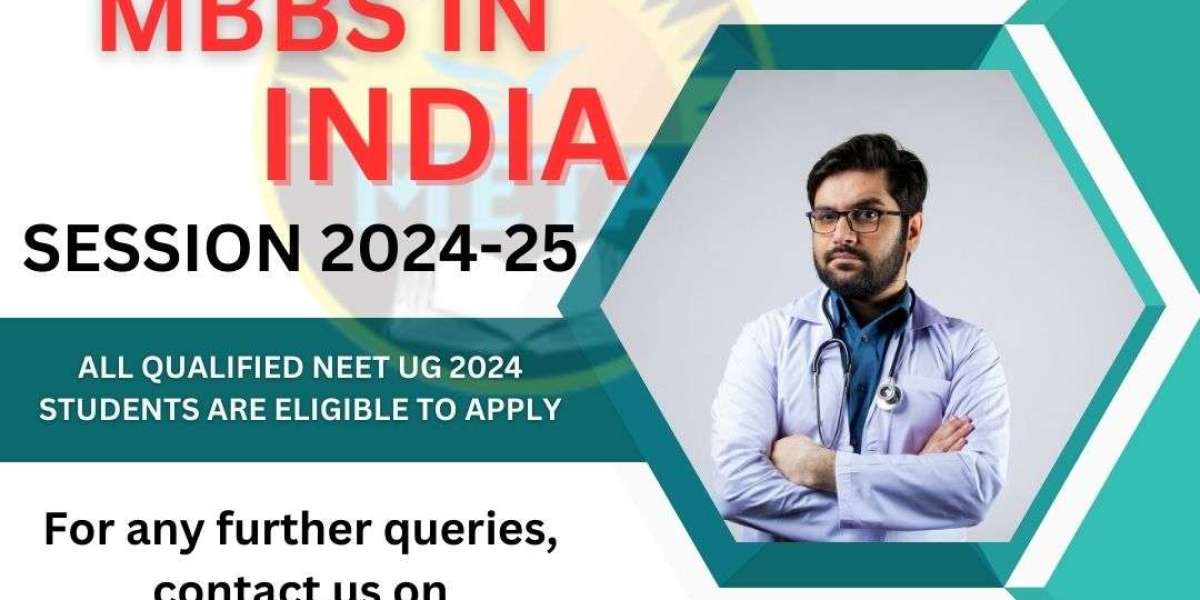MBBS Admission in india
India, with its rich heritage in medical education and healthcare, remains one of the most sought-after destinations for pursuing an MBBS (Bachelor of Medicine, Bachelor of Surgery). Every year, thousands of students vie for limited seats in prestigious medical colleges across the country. The path to securing a spot is challenging but rewarding, and understanding the admission process is the first step toward a successful medical career.
Why Choose MBBS in India?
India’s medical education system is globally recognized for its rigorous curriculum, diverse clinical exposure, and excellent faculty. Here are a few reasons why pursuing an MBBS in India is a great choice:
- Quality Education: Indian medical colleges offer a well-structured curriculum that balances theoretical knowledge with practical skills.
- Diverse Clinical Exposure: Students gain hands-on experience in treating a wide range of medical conditions, thanks to India’s large and diverse population.
- Globally Recognized Degree: An MBBS degree from India is recognized by major international bodies like the World Health Organization (WHO) and can open doors to careers worldwide.
- Affordable Fees: Compared to many Western countries, the cost of medical education in India is relatively affordable, especially in government institutions.
- Vast Career Opportunities: Graduates can choose to specialize in various fields, pursue research, or work in hospitals, clinics, and public health organizations.
Eligibility Criteria for MBBS Admission in India
To apply for an MBBS program in India, candidates must meet certain eligibility criteria:
- Educational Qualification: Completion of 10+2 with Physics, Chemistry, and Biology as core subjects is mandatory. English is also required.
- Minimum Marks: General category students must secure at least 50% marks in 10+2, while reserved category students (SC/ST/OBC) require 40% marks.
- Age Limit: Candidates must be at least 17 years old as of December 31 of the admission year. The upper age limit is 25 years for general category students and 30 years for reserved categories.
Entrance Exams for MBBS in India
The gateway to MBBS admission in India is primarily through entrance exams. The most important exam is:
- NEET UG (National Eligibility cum Entrance Test - Undergraduate): NEET UG, conducted by the National Testing Agency (NTA), is the sole entrance exam for MBBS admissions across all medical colleges in India, including AIIMS and JIPMER. It is a highly competitive exam that tests candidates on their knowledge of Physics, Chemistry, and Biology.
Key Points About NEET UG:
- Exam Pattern: NEET UG consists of 180 multiple-choice questions (MCQs), divided equally among Physics, Chemistry, and Biology.
- Scoring: Each correct answer awards 4 marks, while 1 mark is deducted for each incorrect answer.
- Syllabus: The syllabus is based on the NCERT curriculum for classes 11 and 12, covering Physics, Chemistry, and Biology.
Top Medical Colleges in India
India is home to several renowned medical colleges that offer MBBS programs. Some of the top institutions include:
- All India Institute of Medical Sciences (AIIMS), New Delhi: AIIMS Delhi is the most prestigious medical college in India, known for its excellent infrastructure, faculty, and research opportunities.
- Christian Medical College (CMC), Vellore: CMC Vellore is renowned for its clinical excellence and holistic approach to medical education.
- Maulana Azad Medical College (MAMC), New Delhi: MAMC offers a robust MBBS program with extensive clinical exposure, making it one of the top choices for medical aspirants.
- Armed Forces Medical College (AFMC), Pune: AFMC is known for its disciplined environment and high-quality medical training, especially for students interested in serving in the armed forces.
- Jawaharlal Institute of Postgraduate Medical Education & Research (JIPMER), Puducherry: JIPMER offers a unique curriculum and excellent clinical training facilities.
- King George's Medical University (KGMU), Lucknow: KGMU is a premier medical university with a long history of academic excellence and research.
The Application Process
The application process for MBBS in India involves several key steps:
- Registration for NEET UG: Candidates must first register for the NEET UG exam on the official NTA website. This involves filling out the application form, uploading required documents, and paying the exam fee.
- Preparing for NEET UG: Success in NEET UG requires a deep understanding of the syllabus, regular practice, and strategic preparation. Many students enroll in coaching classes or use online resources to aid their preparation.
- Taking the NEET UG Exam: On the day of the exam, candidates must perform well to secure a high rank, as MBBS seats are allotted based on NEET UG scores.
- Counseling Process: After the NEET UG results are announced, candidates participate in the counseling process. The Medical Counseling Committee (MCC) conducts counseling for All India Quota seats, while state authorities handle state quota seats.
- Document Verification and Admission: Once a seat is allotted, candidates must complete the document verification process and pay the admission fee to secure their spot.
Fee Structure
The fee structure for MBBS programs in India varies widely depending on the type of institution:
- Government Medical Colleges: Typically, fees range from INR 10,000 to INR 1,00,000 per year, making them highly affordable.
- Private Medical Colleges: Fees in private institutions can range from INR 10,00,000 to INR 25,00,000 per year.
- Deemed Universities: These institutions generally have higher fees, often ranging from INR 15,00,000 to INR 40,00,000 per year.
Conclusion
Pursuing an MBBS in India is a challenging yet fulfilling journey that requires dedication, hard work, and a clear understanding of the admission process. With top-notch medical colleges, a globally recognized degree, and a wide range of career opportunities, an MBBS degree from India can open doors to a successful and rewarding medical career.
By preparing thoroughly for the NEET UG exam, understanding the eligibility criteria, and navigating the application process effectively, aspiring doctors can achieve their dream of studying medicine in India. Whether you aim to work in India or pursue further studies abroad, an MBBS degree from a reputable Indian institution will provide a strong foundation for your medical career.












